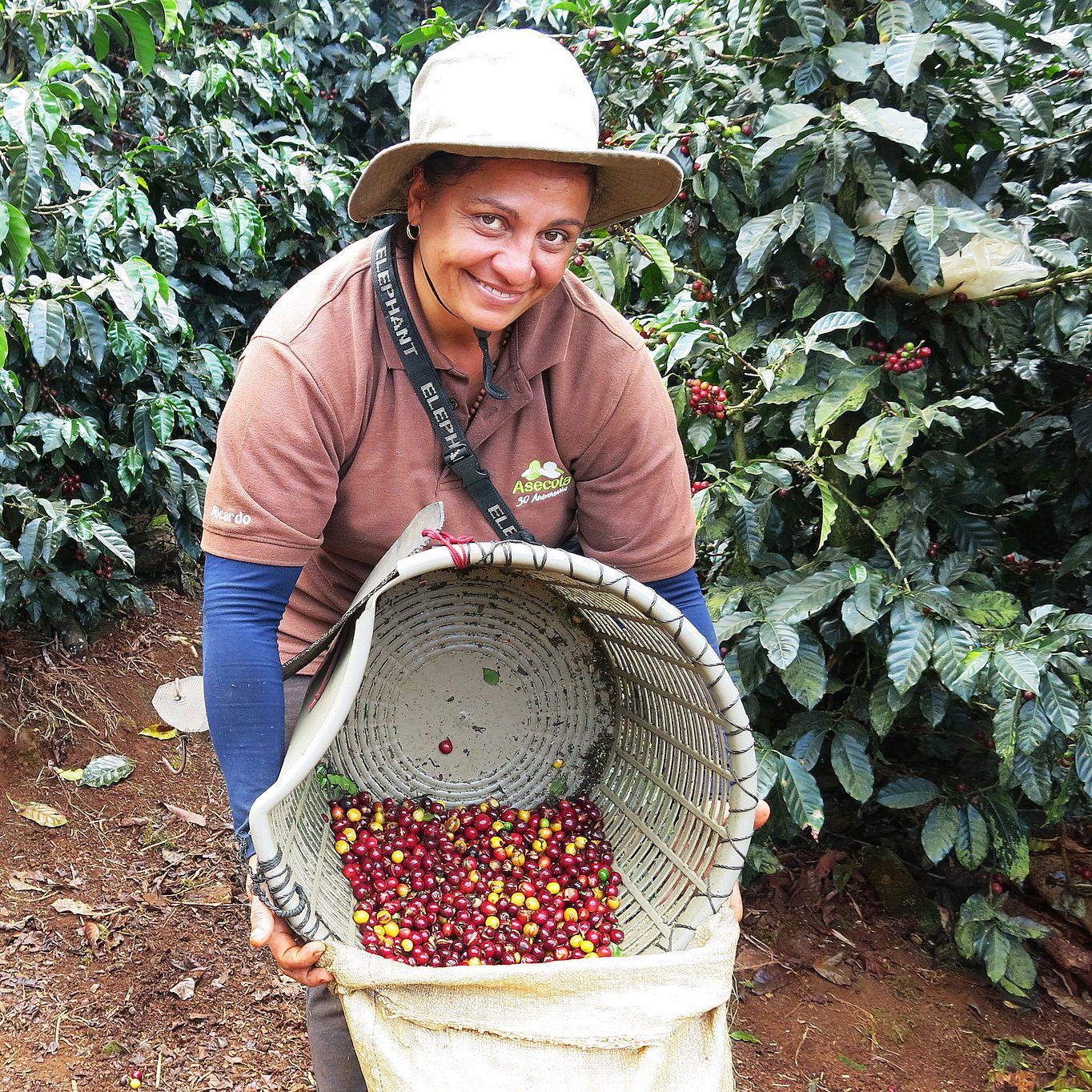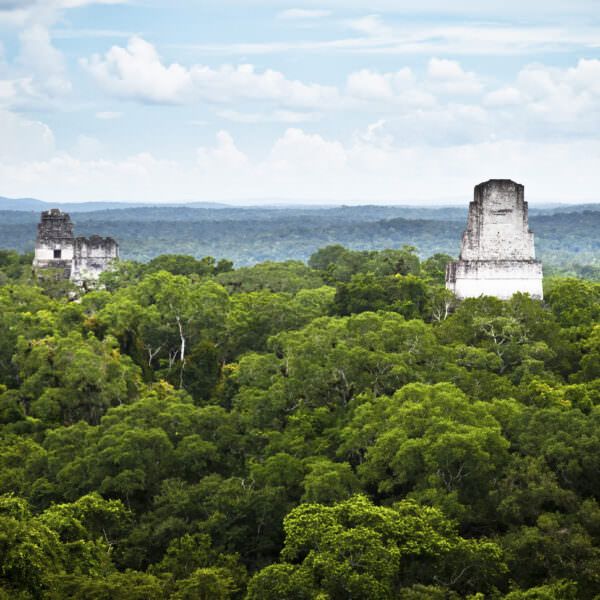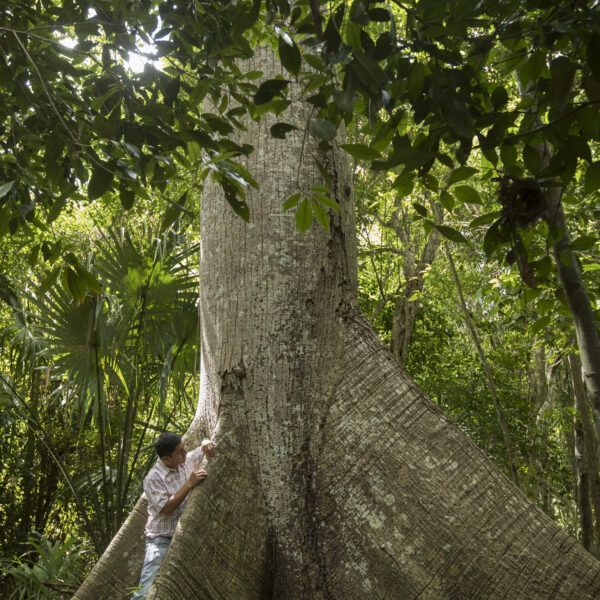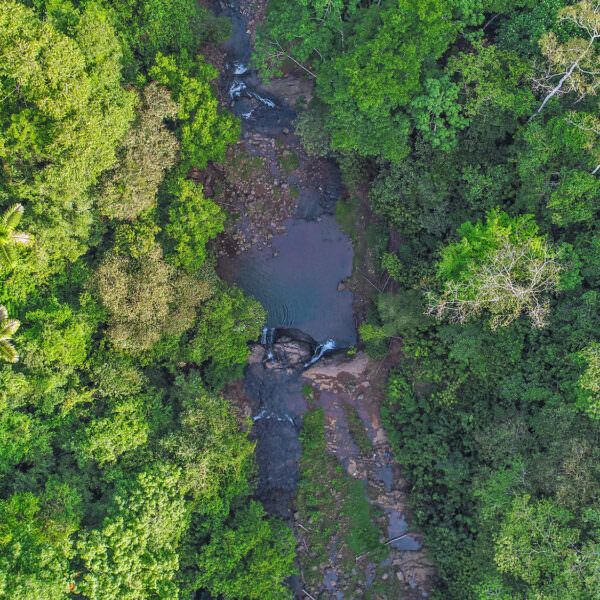Community: The Secret to Stopping Deforestation in Guatemala
The forest concessions of the Maya Biosphere Reserve have boasted a near-zero deforestation rate for 20 years.
Home / Regions / Central America & Mexico / Page 17
Mexico and Central America are world leaders in granting land rights to local and indigenous people—a crucial step in protecting forests. But even with significant gains in rights, forest communities are facing threats from agricultural expansion, illegal loggers, and drug traffickers.

Farmers in Mexico and Central America are already dealing with the effects of climate change: shorter growing seasons, unpredictable rainfall, and a surge in plant diseases and pests. Crops like coffee and bananas could become rare delicacies in the future without bold climate action—but the livelihoods and well-being of farming communities are in jeopardy now.
Our impacts in Mexico and Central America are nothing short of stunning: In areas managed by our partner communities in Guatemala’s Maya Biosphere Reserve, for example, logging has remained at almost zero since 2001—remarkable given that adjacent areas suffer some of the worst deforestation rates in the Americas.
![]()
equivalent annual emissions of greenhouse gases removed from the atmosphere
We provided technical assistance to a group of coffee farmers in Oaxaca, Mexico, who launched an agroforestry project to remove 130,000 tons of greenhouse gas emissions (the annual emissions of 27,000 cars) from the atmosphere over 30 years through reforestation of degraded land.
![]()
have studied our environmental curriculum in Mexico and Guatemala
We not only provide training and curricula to teachers in southern Mexico and Guatemala, but we also help build local networks so educators can sustain this vital environmental education work in their communities for years to come.
In a region hard hit by climate change, the Rainforest Alliance focuses on advancing community forestry, sustainable agriculture, ecotourism, and environmental education to defend vulnerable landscapes and support rural communities.

The forest concessions of the Maya Biosphere Reserve have boasted a near-zero deforestation rate for 20 years.

We are working to grow Mexico’s domestic market for sustainably produced products.

This farm doesn't just grow bananas–it's producing biodiversity, fresh air, and stronger soils.

Sustainably harvested wood is at the heart of this new business run by indigenous Maya women.

Technical Assistance and New Market Access for Community Forest Enterprises in the Rio Plátano Biosphere Reserve, Honduras Applying the principles of sustainable forest management and sound business practices, by 2008 the twelve participating cooperatives had achieved remarkable successes in increasing their productivity, enterprise competitiveness and overall income. The below points summarize the most significant gains: Sustained […]

This case study report describes work undertaken to improve community forest enterprise competitiveness in Mexico as a means to local economic development and forest conservation. Over a three-year period, Rainforest Alliance facilitated increased investment while providing technical assistance in value-added processing fora medium-sized indigenous community forestry operation in the northern state of Durango. As a […]

Covering over two million acres, the Rio Plátano Man and Biosphere Reserve (RPBR) is Honduras’s largest natural forest reserve and an area of global biodiversity importance. Twelve community cooperatives have been granted the right to harvest timber and non-timber forest products in multiple-use zones of the RPBR, but they face substantial technical and financial challenges. […]

This report describes work undertaken to improve community forest enterprise competitiveness in Mexico as a means to local economic development and forest conservation. Over a three-year period, the Rainforest Alliance facilitated increased investment while providing technical assistance in value-added processing for a medium-sized indigenous community forestry operation in the northern state of Durango. As a […]

An economic impact study of five tourism businesses in Granada, Nicaragua, shows that sustainable tourism provides quality employment, promotes gender equity and benefits the local economy.

Conservation and Use of Bursera spp. in the Tropical Dry Forests of Oaxaca: The Role of Markets and Certification in the Management of Non-Timber Forest Products The main objective of this project is to examine the ecological and market dynamics of some non-timber forest products of economic importance from the dry tropical forests of Oaxaca, Mexico. One […]... Continue Reading